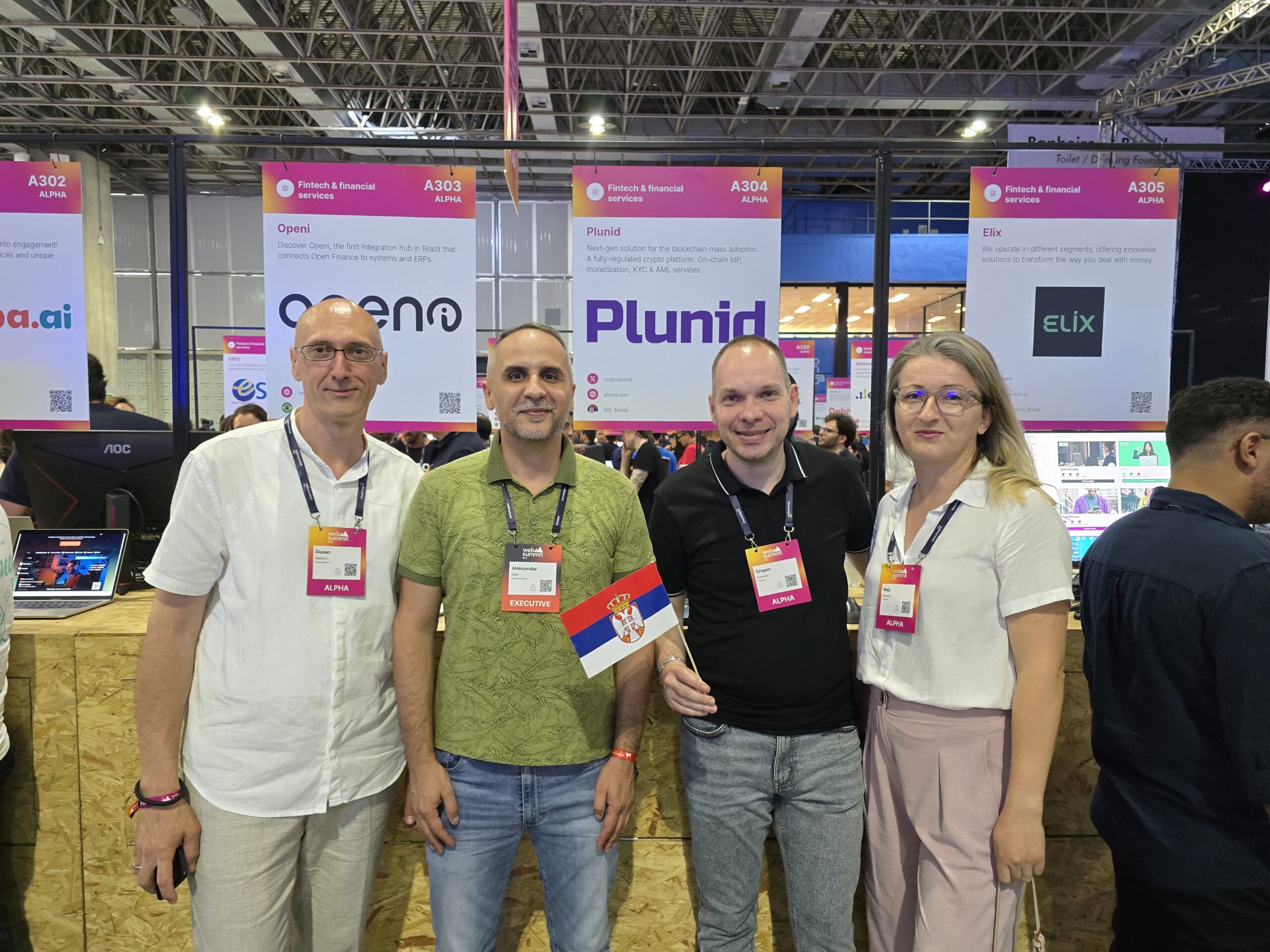Serbia – Brazil
Not a football or volleyball final, unfortunatelly. The Crypto Plunid team headed to Rio de Janeiro last week to see what’s happening with blockchain on the distant continent of South America. And I can tell you — Brazil is nothing like what we expected in any sense.
From a tourism standpoint, Brazil is outstanding and has much more to offer than what we saw in the brochures. But in terms of safety (you’ve probably heard of the favelas), if I had to travel there again purely as a tourist — I’d rather stay home. The stories about the favelas are by no means exaggerated, and what we encountered in Rio were blocks of buildings surrounded by high fences, armed guards at entrances, barbed wire on the walls, and so on. Even though we didn’t have any bad experiences, the very sight made us uneasy.
The people are good-natured and cheerful (although on the first day no one was willing to lend us a phone charger).
When it comes to technology and blockchain development — that’s a completely different story. Brazil is far ahead of Europe. Yes, they have regulators too, but theirs promote rather than suppress innovation — unlike what European lawmakers seem to be doing. One reason may be that Brazil has a large population that is generally unbanked (many don’t have bank accounts, or had them and closed them), so instant payment apps have developed at an astonishing pace.
At Web Summit Rio, we were impressed by the openness of the Brazilian government to innovation. The conference mentioned that the government has formed a team of about 40 people whose sole task is to review 400 new amendments proposed to their current financial legislation. The goal of this discussion is to allow new Fintech solutions to operate legally and help the unbanked population.
Out of 210 million people, around 10 million don’t have any form of ID and are invisible to state institutions (living in favelas, rainforests, etc.). Up to 20% of the adult population has no bank account at all (but they do have cell phones).
We were surprised by how much Brazilians like to use BNPL (Buy Now, Pay Later) services. Some people open a bank account, make a purchase in installments, pay only the first installment — and never pay the rest (nor did they ever intend to). The penalty for this is being barred from opening accounts with that or other banks for a year, but those people don’t seem to care. In every store, prices are listed both as the full cash price (“à vista”) and as installment plans (“parcelamento sem juros”) split into ten or twelve monthly payments.
Crypto Plunid had its own Alpha booth at WebSummit, where it presented its upcoming services and solutions to interested investors and potential partners. We were also very pleased to take the opportunity to personally meet with the Serbian Ambassador to Brazil, Aleksandar Ristić.
In conclusion, I can only say this: we expect a technological boom from Brazil, because everyone is wholeheartedly working toward that very goal.
